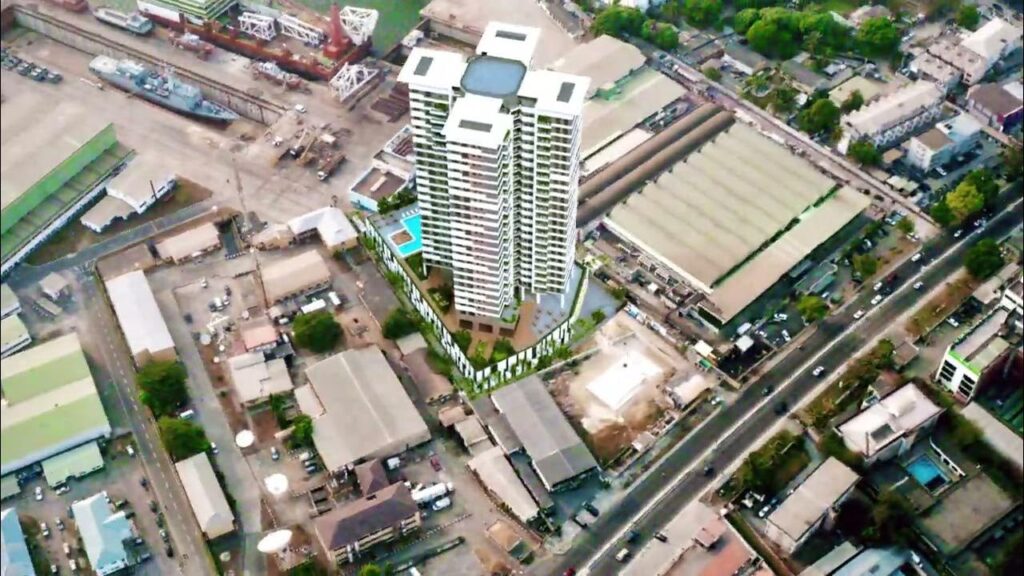
Though the housing market was coming out from the recession that had worsened inventory, which was on a steady decline, the pandemic deepened the sector’s woes.
Professionals say the year was most challenging for the housing sector, as there were limited activities and low disposable income among Nigerians, who wanted to build or rent homes.
They noted that construction sites were halted for several months due to coronavirus induced lockdown. The low price of crude oil in the international market, high inflation rate, and the astronomical increase in the cost of building materials also dealt a big blow to the sector.
More worrisome was the overall depletion in growth as the sector tumbled to -21.99 per cent in the second quarter of 2020 making it the lowest since 2016. Monetary/economic activities in the property sector in quarter two, were -18.15 per cent lower than -3.84 growth recorded in the corresponding quarter of 2019, while on quarter to quarter basis, real estate performance declined by -2.71 per cent in the period under review.
Production in the commercial real estate segment was in a slight decline in quarter two, 2020 as projects both by the private developers and government were halted with very low transactions due to COVID-19 restriction protocols. Overall, the property market contributed 5.30 per cent to the economy in quarter two of 2020, lower than 6.43 per cent recorded in 2019. The office segment also saw a dip in the outgone year as many resulted to ‘work from home’.
Some of Nigeria’s urban households who rented accommodation in the cities were forced to relocate to the suburbs to keep up with housing affordability, which was beyond the minimum wage earnings. In the residential segment, the least available one-bedroom cost between N1.5 million to N1.8 million (public sector built) while housing cost from the private sector for the same type starts from about N10 million, depending on the location and finishing.
Amid these, operators also contended with the pervading inadequate/high mortgage finance and loans, high cost of land, under-funding of the sector, non-implementation of housing policies, and corruption, which still loom large.
The president of, Nigerian Institute of Town Planners (NITP), Toyin Ayinde, said the year posed quite a number of challenges for the real estate and construction sector, especially the first four months of the year when the nation was on lockdown.
The development, he stated disturbed the supply chain and construction workers. Although those in design were able to design from home, but construction couldn’t be done from home and those who supply couldn’t supply from home.
“There was a disruption to the normal flow of activities in the construction sector, stressing that the vandalism that followed the EndSARS protest caused the destruction of the limited real estate developments.
“The destruction was a loss to the stock we had and was a setback for the construction industry. The places burnt are also an opportunity to look for a better replacement and re-planning for areas destroyed,” he said.
He recalled that practice by professionals was limited as timed projects couldn’t be completed, especially those who could have held their stakeholders’ forum for feedback on a project couldn’t do anything until after the lockdown.
Ayinde noted that the construction sector has been one of the most disadvantaged in terms of government’s interventions.
He said there has been government intervention in the banking, aviation sector, yet it hasn’t been better, same for Nollywood but the construction sector has never had those kinds of benefits.
“The sector deserves intervention because construction is a major employer of labour after agriculture. When construction activities are on in any country, it spreads prosperity to others. The more money is injected into construction, the better. It’s either you are constructing or reconstructing derelict or faulty buildings for maintenance. This takes deliberate allocation of resources to make the sector work.
For the President of, Nigerian Society of Engineers (NSE), Babagana Muhammed, the year wasn’t a good year as there were very low construction activities. He revealed that some developments were made in the last quarter of 2020 with some construction springing up in several locations.
Muhammed reinstated that real estate is a capital-intensive venture, hence the need for government to provide an enabling environment that allows private investors through Public-Private Partnership (PPP).
He emphasised that the government can’t continue to develop houses for people because it doesn’t have the money, stressing that engineers must be encouraged to build houses on a PPP basis for the populace.
The President, Nigerian Institution of Estate Surveyors and Valuers (NIESV), Sir Emma Wike, observed that most of the properties that were project-managed by its members were halted because there was no fund to provide building materials to sites due to the lockdown, adding that the development delayed the completion of several projects.
He also noted challenges associated with foreign exchange for importation of building materials, which adversely impacted the cost of buildings.
According to him, for properties that were already developed and occupied, users were forced to stay at home because of COVID-19 protocols. This, he noted, affected members’ productivity.
“It was not an easy period for estate surveyors and valuers, including those who are into projects, facility management, property management, valuation of plants, and machinery.”
According to him, with the new threat by the federal government to impose another lockdown, the nation would face a worse scenario in 2021.
Wike urged the federal government to create an enabling environment that allows people to invest in real estate by giving tax holidays for the importation of building materials and palliatives to the real estate sector as obtains in other sectors.
He stated that the government needs to repeal the Land Use Act, which has been an impediment to real estate development, adding that “now is the right time for the government to make access to land easy.
“I’m aware that there was the provision of N500 billion for the sector. If that money is injected into the real estate sector, it will help the economy to recover from the recession. Those who are into the real estate sector should be able to access the money. Government should also consult professional bodies for expertise and advice.”
According to the President of, Nigerian Institute of Building (NIOB), Kunle Awobodu, the year impacted negatively on its members and made them look inward for local building materials for construction.
He said, “Real estate is the fulcrum of the nation’s economy and can’t be left for exploitation and revenue generation. The government needs to support the sector to thrive in terms of alternative building materials. High cost of cement should be reduced and the government must quickly look into that because something is wrong somewhere.”













